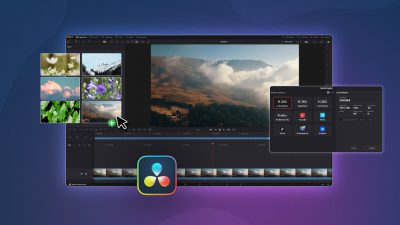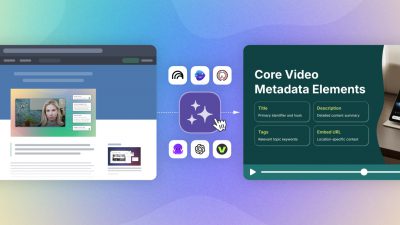Good for you! Your script is written. The journey is almost over.
Editing your script is the final, very tall hurdle. Editing can be a gut-wrenching process. But, out of the ashes a better script will rise. Really, it will rise. Here are a few tips of wisdom to make the process less daunting.
1. Vacation
Walk away from your script. In fact, put it far into the recesses of your deepest closet. Get a beer and head to your porch.
At this point, it’s time to put away the pages of your script, discolored by your blood, sweat, and coffee. Take a breath and walk away. Go back out into the sun and enjoy your life.
Taking some time away from the project will help you to clear your head, detach a bit, and come back with a more objective mind. So, to start, just give yourself a break. You will thank yourself.
2. Read it Out Loud
Set up a table. Bring in the chairs. Take that script to Kinkos.
Wherever you wish, gather your friends and read it out loud. Yes, this might induce some cringes as you go around the table, but this is an important first step in figuring out what works on paper and what works in reality.
Reading your script aloud will highlight dialog that needs to be worked on. This is also a great opportunity to get some feedback.
3. Visualize
Scripts have two main points of focus: dialogue, to which the audience is privy; and action, all the visual elements of your story. Your audience either needs a piece of dialogue or an action to understand why something is happening.
If your speaker is laughing on camera, your audience either needs to hear or see what was funny. If a product needs to be demonstrated, make sure to include the action in your script.
Even though your audience is never going to read the actions of your script, they still need to be edited. How do you edit an element that needs to be acted? Visualization.
Make sure that you can see that action happening given the directions of your script. If not, you need to continue to develop that part of your script until you can clearly see the scene in your head.
4. Dialogue
This one is a toughie. Dialogue is important. Editing dialogue can be difficult.
Your dialogue helps move your video. Dialogue should be strong, yet realistic. Because your video is likely short, dialogue will help set up context and bring in outside information.
When you are editing dialogue, start by looking for generic lines that are not integral to the scene or pitch. Remember, avoid stale dialogue and limit rambling. Especially when it comes to shorter videos, dialogue should be to the point and relevant.
5. Include vs. Exclude
One of the hardest and most important steps of editing any document is figuring out what really needs to be part of the final product.
Editing is not just about fixing comma splices, split infinitives, and obnoxious misspellings. Editing is about figuring out redundancy and parceling out what should remain in your manuscript.
This can be especially challenging when it comes to scripts. Sometimes your story needs irrelevance and whimsy to provide comedic relief. Sometimes your script just does not.
Look for lone actions and dialogues that are unnecessary. Again, this is a good reason to read your script out loud. The extraneous parts will beg to be liberated from your narrative. If you do not realize it, someone else reading it with you will.
When dealing with time constraints, this step can help you to keep your video short and sweet, while maximizing relevant material.
6. Do Not Ignore Grammar
Yes, we just made the point that reviewing grammar might not be the most important part of the editing process. However, it should not be ignored.
A comma here or there can completely change the meaning of a sentence. Ellipses are going to indicate to your actor that they need to take a beat… or that your period key was stuck. A misplaced comma can be the difference between life and death. An apostrophe can indicate a contraction or a slow, Southern drawl.
Hunting for typos is important no matter what you are editing, but it is even more important when those grammatical marks are indicating how something should be read aloud by another person.
7. Revise. Revise again.
Editing is not fun. The process is meticulous and slow-going. Editing is nerve frazzling and you are unlikely to be done in one shot. You are going to have to butcher your script, dismembering it again and again.
After you are done with a revision, see step one. Take a break and start on something new. Knit. Paint. Bake muffins. Take up Kendo. Then come back refreshed, full, and less frazzled.
8. Do Not Edit Alone
One of the best tricks of editing a script is having someone do it for you. No matter how many times you step away from your manuscript, you will never come back with a completely objective mind. The blood, sweat, coffee stains, and unnatural attachment will always be lurking.
Find someone who can tolerate your madness and who you feel comfortable taking criticism from — this is important. Having someone else edit your work can be draining for both parties, but it is crucial to have that objective set of eyes go through your script.
They will find redundancies and superfluous material that you would never have caught. No matter how short your script may be, getting some outside editing will only help refine your script and your writing.
9. Consistency
This is another element of editing that often goes overlooked. Make sure that your script and your story are consistent.
The initial writing process is a whirlwind of creative energy. Sometimes we lose ourselves in our ideas during that initial write-up.
Now is your opportunity to make sure that the elements and themes of your script are consistent. Ensure that the parts make a whole. Look for parts of your script that may seem inconsistent and work to make them fit in with the rest of your narrative. If you cannot seem to make them work, take them out.
10. Format
Do not ignore formatting. You put a lot of hard work into this script. Make sure it is acted and directed the right way.
Edit your formatting, making sure that actions are clearly actions and dialogue is clearly dialogue. Your actors should know who is speaking. Your script should be clean, clear, and professional. This may seem simple, but chances are that as you were scrambling to pen your ideas, formatting became a rather low priority.
Do your script justice. Take the time to format it.
It can feel like a marathon to get through the editing process but if you come away from it with a beautiful script that practically ensures a great online video, it will have all been worth it. Let us know what you think of our tips here, on our Facebook, and on Twitter!







